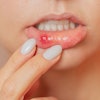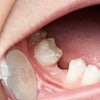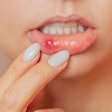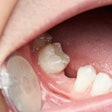
We all are exposed to stress. Some of us deal with it well. Many of us don't. Did you know that chronic stress can destroy the gut and affect your patients' oral health? All of us must respect the damaging effects of continuous stress on the body.
Effects in the gut
Stress can be the initial insult to the gut.
Although many articles have been written about stress in our lives, science had not until recently uncovered specifically how stress can cause damage to the gut. Newly published research attempts to explain the specifics of what is going on.
A March 27, 2018, study in the Proceedings of the National Academy of Sciences revealed how chronic stress affects the gut. The investigators' research used four groups of mice:
 Alvin Danenberg, DDS.
Alvin Danenberg, DDS.- A normal group
- A stressed group
- A chemically induced colitis group
- A stressed plus chemically induced colitis group
Mice in the stressed groups were stressed by being restrained in their ability to move forward and backward in their cage for three hours a day for one month. The chemically induced colitis groups received a chemical for seven days to induce colitis. Various tests were performed on each group of mice before they were sacrificed, and the colon tissues were examined following sacrifice.
The scientific team determined that stress initially caused unhealthy changes in the gut microbiome. The immune system became compromised only after stress had induced gut dysbiosis. The end result was an increase in the severity of the chemically induced colitis.
Human implications
Although this research uses a mouse model, it has implications for us as dentists and your patients.
“Stress often is not appreciated for its powerful influence.”
Diet, exercise, and sleep are all important to support a healthy gut microbiome, a healthy immune system, and a healthy body. However, stress often is not appreciated for its powerful influence. Stress, all by itself, can be the cog in the wheel that sets off some unhealthy consequences.
The research showed that stress caused an unhealthy change in the diversity of gut bacteria. The resulting imbalance of gut bacteria caused a decrease in the quality and quantity of the mucus layer. Once the mucus layer is degraded, the gut's epithelial lining becomes susceptible to damage. As a result, the immune system can become activated, causing chronic inflammation. In this study, chronic inflammation caused exacerbation of the chemically induced colitis.
Effects in the mouth
How does this relate to the mouth?
In a 2017 study in Cytokine (July 2017, Vol. 95, pp. 1-6) investigators showed that inflammatory bowel disease (IBD) has a direct effect on the health of the gum tissues. In the study, increased severity of IBD increased active gum inflammation. When IBD was in remission, gum inflammation decreased.
The pathway from the gut to the mouth is interesting. Research has shown that the gut microbiome can affect the function of the immune system (Journal of Biochemistry (February 2018, Vol. 163:2 pp. 105-112).
Bottom line
What may be obvious may also be complicated. The bottom line is to reduce external chronic stress as much as possible. However, speaking personally, stress reduction has been the most difficult lifestyle change to learn and adopt. It's not easy, but it can be lifesaving.
Alvin Danenberg, DDS, practices at the Bluffton Center for Dentistry in Bluffton, SC. He is also on the faculty of the College of Integrative Medicine and created its integrative periodontal teaching module. He also spent two years as chief of periodontics at Charleston Air Force Base earlier in his career. His website is drdanenberg.com.
The comments and observations expressed herein do not necessarily reflect the opinions of DrBicuspid.com, nor should they be construed as an endorsement or admonishment of any particular idea, vendor, or organization.
















